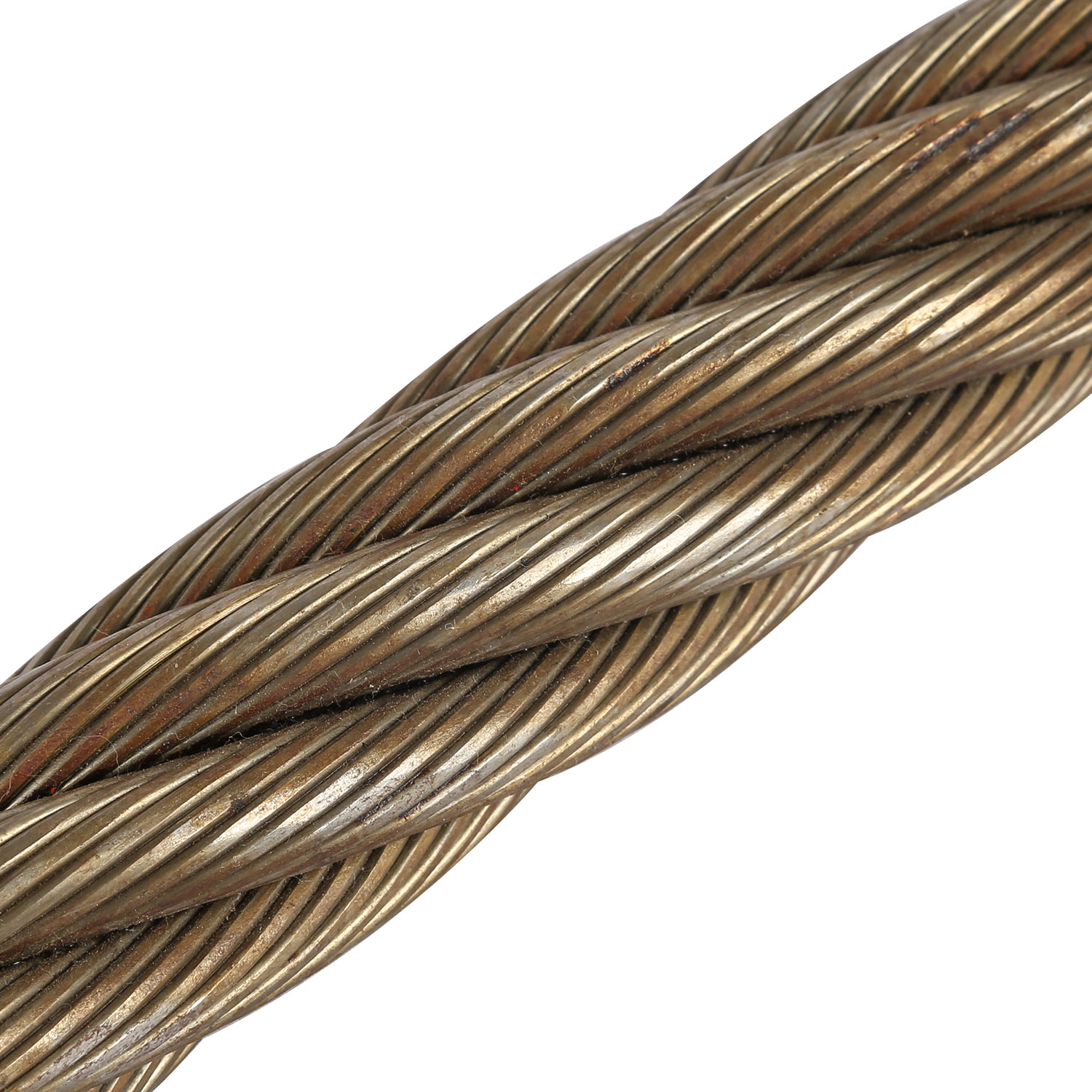Table of Contents
The Composition of Wire Rope: Understanding the Materials Used
Wire rope is a crucial component in various industries, including construction, mining, and transportation. It is a type of cable made up of multiple strands of metal wire twisted together to form a strong and flexible rope. The materials used in wire rope play a significant role in determining its strength, durability, and performance. Understanding the composition of wire rope is essential for selecting the right type for specific applications.
One of the most common materials used in wire rope is steel. Steel wire ropes are known for their high tensile strength, corrosion resistance, and durability. The steel used in wire rope is typically made from Carbon Steel, which is a combination of Iron and carbon. Carbon steel is known for its strength and toughness, making it an ideal material for applications that require heavy lifting or pulling.
In addition to carbon steel, other alloys are sometimes used in wire rope to enhance its properties. For example, Stainless Steel wire ropes are made from a combination of steel, chromium, and Nickel. Stainless steel wire ropes are highly resistant to corrosion, making them suitable for outdoor and marine applications where exposure to moisture and saltwater is common.
Another material commonly used in wire rope is galvanized steel. Galvanized steel wire ropes are coated with a layer of Zinc to protect them from corrosion. The zinc coating acts as a barrier between the steel wire and the Environment, preventing rust and extending the lifespan of the wire rope. Galvanized steel wire ropes are commonly used in outdoor applications where exposure to moisture and harsh weather conditions is a concern.
Apart from steel, wire ropes can also be made from other materials such as Aluminum, Copper, and synthetic fibers. Aluminum wire ropes are lightweight and have a high strength-to-weight ratio, making them suitable for applications where weight is a concern. Copper wire ropes are known for their excellent conductivity and are often used in electrical applications.

Synthetic Fiber ropes, such as nylon and polypropylene, are lightweight and flexible alternatives to traditional metal wire ropes. These ropes are commonly used in applications where weight and flexibility are important, such as in the marine industry for mooring lines and towing ropes.
In addition to wire rope, steel is also commonly used in well casing pipes. Well casing pipes are used in oil and gas drilling operations to protect the wellbore and prevent contamination of groundwater. Steel well casing pipes are made from carbon steel or stainless steel and are designed to withstand high pressure and corrosive environments.
Steel wire tires are another application of steel in the automotive industry. Steel wire tires are made from high-strength steel wires that are woven together to form a durable and flexible tire carcass. Steel wire tires provide excellent traction, stability, and durability, making them suitable for a wide range of vehicles, from passenger cars to heavy-duty trucks.
In conclusion, the composition of wire rope, steel well casing pipes, and steel wire tires plays a crucial role in determining their strength, durability, and performance. Steel is the most common material used in these applications due to its high tensile strength, corrosion resistance, and durability. Understanding the materials used in these products is essential for selecting the right type for specific applications and ensuring their reliability and longevity.
Exploring the Properties of Steel Well Casing Pipe and Its Applications
Steel well casing pipe is a crucial component in the construction of water wells, oil wells, and other underground structures. It is designed to provide structural support and prevent the collapse of the wellbore, ensuring the integrity of the well. Steel well casing pipe is typically made of high-strength steel, which offers excellent durability and resistance to corrosion.
One of the key properties of steel well casing pipe is its strength. Steel is known for its high tensile strength, which allows it to withstand the immense pressure and weight of the surrounding soil and rock. This strength is essential for maintaining the structural integrity of the well and preventing any potential collapse or damage.
In addition to its strength, steel well casing pipe also offers excellent corrosion resistance. Steel is naturally resistant to rust and corrosion, making it an ideal material for use in underground applications where exposure to moisture and other corrosive elements is common. This corrosion resistance helps to prolong the lifespan of the well casing pipe and ensures its long-term performance.
Steel well casing pipe is also highly versatile and can be easily customized to meet the specific requirements of a well construction project. It is available in a variety of sizes, thicknesses, and lengths, allowing for flexibility in design and installation. This versatility makes steel well casing pipe suitable for a wide range of applications, from shallow residential wells to deep oil and gas wells.
One common application of steel well casing pipe is in water wells. Steel casing pipe is used to line the wellbore and protect the water supply from contamination. It also helps to stabilize the well and prevent the collapse of the surrounding soil. Steel well casing pipe is an essential component in ensuring the Safety and reliability of water wells, providing a durable and long-lasting solution for water supply systems.
Another important application of steel well casing pipe is in oil and gas wells. Steel casing pipe is used to line the wellbore and provide structural support for the extraction of oil and gas. It helps to maintain the integrity of the well and prevent any leaks or failures that could result in environmental damage. Steel well casing pipe is a critical component in the oil and gas industry, ensuring the safe and efficient extraction of resources from underground reservoirs.
In conclusion, steel well casing pipe is a durable, versatile, and corrosion-resistant material that is essential for the construction of water wells, oil wells, and other underground structures. Its high tensile strength, corrosion resistance, and versatility make it an ideal choice for a wide range of applications. Steel well casing pipe plays a crucial role in ensuring the safety, reliability, and efficiency of underground systems, making it an indispensable component in the construction industry.

